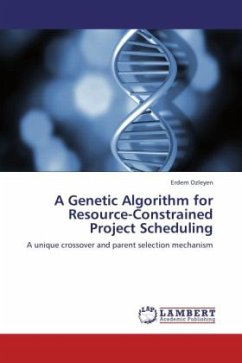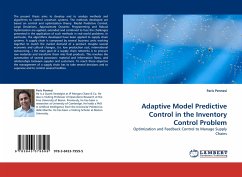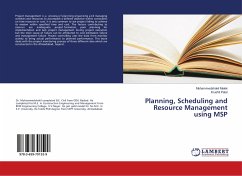The resource-constrained project scheduling problem (RCPSP) aims to find a schedule of minimum makespan by starting each activity such that resource constraints and precedence constraints are respected. However, as the problem is NP-hard in the strong sense, the performance of exact procedures is limited and can only solve small-sized project networks. In this study, the proposed genetic algorithm (GA) aims to find near-optimal solutions and also overcomes the poor performance of the exact procedures for large-sized project networks. The proposed algorithm employs two independent populations: left population that consist of left-justified (forward) schedules and right population that consist of right-justified (backward) schedules. The repeated cycle updates the left (right) population by maintaining it with transformed right (left) individuals. By doing so, the algorithm uses two different scheduling characteristics. Also, the algorithm provides a new two-point crossover operator that selects the parents according to their resource requirement mechanism. The experiment results show that the suggested algorithm outperforms the well-known commercial software packages.







